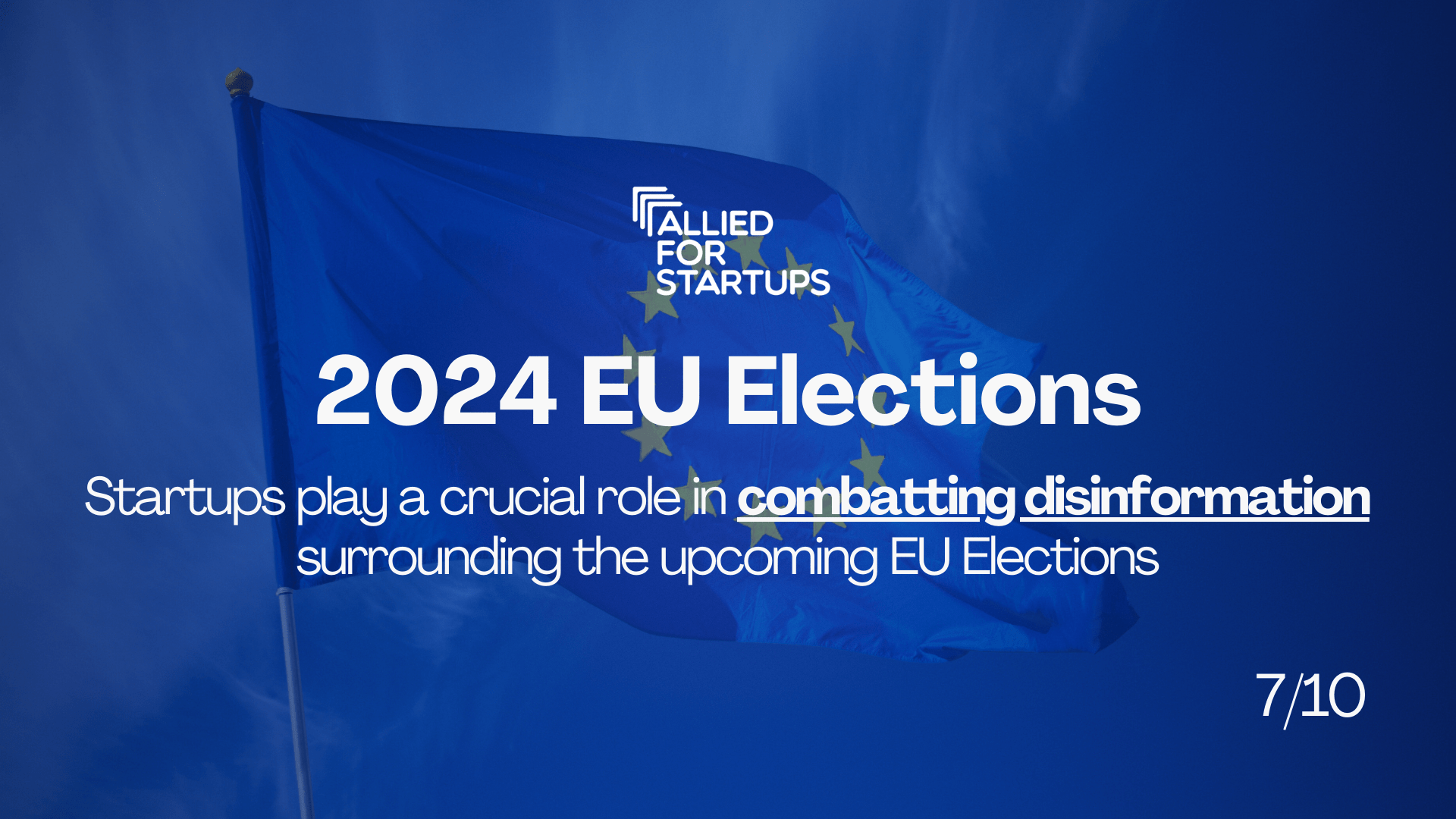The impact of disinformation on startups and their role in combating it
When you say 2024, you say elections! This year, more than 2 billion voters in 50 countries will head to the polls to cast their vote. Would 2024 then be the perfect year to celebrate democracy and free and fair elections? Well, against the backdrop of this super election year, concerns about the increasing spread of disinformation are ever-rising. Particularly as technological developments make the creation and distribution of disinformation easier while the detection of these falsehoods is getting evermore challenging. As a result, the free and fair election process is being threatened, challenging democracies across the globe. In this article, we’ll take a look at how disinformation impacts startups and how startups are a vital force to fighting it. Let the party of countering disinformation begin!
How does disinformation impact startups?
Startups, first and foremost, thrive in democracies where high-quality and factual information is available for R&D, governance and regulatory processes are transparent; where there is quality and uncensored education that provides them with skilled and knowledgeable talent, and strong legal frameworks are in place to protect intellectual property rights and contracts. The spread of disinformation destabilises democracies by hampering the free and fair election process, challenging these fundamental prerequisites for startups to successfully innovate and develop their business plans.
Disinformation also poses a multiplicity of other challenges to startups. Think for example of a new startup that is working hard to build trust and credibility among its target customers, investors, and other stakeholders. When there is a proliferation of disinformation in the market, it becomes increasingly difficult for startups to establish themselves as reliable sources of information or trustworthy entities. More generally, disinformation can create uncertainty and volatility in the market, leading to fluctuations in consumer behaviour, investor confidence, and regulatory landscapes. This makes it more difficult for startups to understand its target customers and develop targeted marketing strategies to reach its envisioned customer base.
Lastly, the spread of disinformation often prompts regulatory authorities to introduce new regulations or tighten existing ones to mitigate its harmful effects. Startups may face increased compliance burdens and legal risks, requiring them to allocate their limited resources to ensure adherence to evolving regulatory frameworks. The spread of disinformation, thus, poses multifaceted challenges to startup innovation, impacting trust, market stability, consumer behaviour, investor confidence, and regulatory compliance.
How can startups contribute to the fight against disinformation?
Tech startups also can play a pivotal role in fighting disinformation. Here are some examples:
- Take an AI startup that develops AI tools which analyse and detect disinformation patterns across various online platforms. These tools can use natural language processing (NLP) algorithms to identify misinformation, fake news, and propaganda, enabling swift action to counter it.
- Another example can be a startup creating fact-checking platforms. This startup can build platforms that allow users to verify the authenticity of information circulating online. These platforms can employ crowdsourcing techniques, AI, and machine learning algorithms to quickly assess the credibility of news articles, social media posts, and other content.
- Alternatively, imagine a startup that leverages blockchain technology to create transparent and tamper-proof systems for verifying the authenticity of news sources and content. Blockchain-based platforms can track the origin and dissemination of information, making it more difficult for malicious actors to spread false narratives.
Thus, startups have the agility and innovation necessary to address the complex challenges posed by disinformation. By leveraging technology, startups can make significant contributions to promoting truth and combating falsehoods in the digital age.
What does the EU do to counter disinformation?
In 2018, the EU established a voluntary Code of Practice on Disinformation, which aims to address the spread of disinformation online. Signatories to this code commit to measures such as enhancing transparency of political advertising, disrupting advertising revenue for purveyors of disinformation, and empowering users and the research community. This code will transition into a code of conduct under the Digital Services Act (DSA).
While the primary focus of the DSA is on content moderation, platform accountability, and user safety, it also includes provisions related to countering disinformation. The DSA, for instance, proposes transparency obligations for online platforms, requiring them to disclose information about the algorithms they use to recommend and promote content. This transparency can help in understanding how disinformation spreads and identifying the sources of false information.
Under the DSA, online platforms are also required to implement measures to mitigate the spread of disinformation on their platforms. This includes measures such as labelling false or misleading content, reducing the visibility of such content, and providing users with tools to report misinformation. The DSA, thus, aims to create a more transparent, accountable, and safer online environment by addressing various challenges, including the spread of disinformation.
Conclusion
Startups are directly impacted by the spread of disinformation, creating a variety of challenges. On the other hand, startups can play a vital role in fighting disinformation in various ways by leveraging technologies to develop innovations to detect, counter or remove disinformation from online platforms. As the EU, for example through the DSA, has intensified its fight against disinformation, it should consider startups as valuable allies in this quest. This way, together, European free and fair elections can be protected and strengthened.

